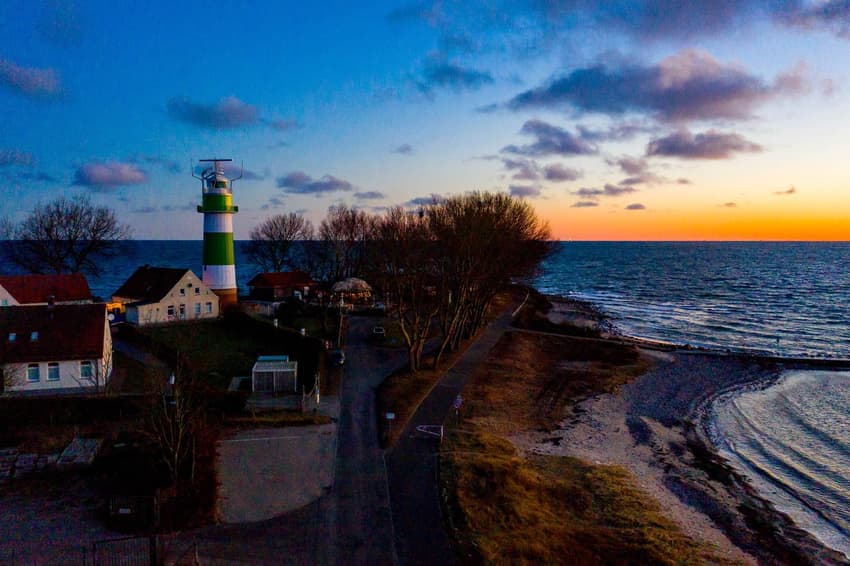More Germans mull move to countryside as 'home office' grows in popularity

Over one-fifth of Germans would consider moving house if working from home remained an option after the coronavirus crisis, according to a new study.
The research by from market research publication Handelskontor showed that for 16-24-year-olds, the figure stood as high as 35 percent.
For those in the 25-34 year-old range, the figure was 29 percent, with each age group progressively less willing to budge from where they currently call home.
Prior to the pandemic, only three percent of Germans worked from home on a regular basis - a number that’s expected to grow 166.7 percent once the crisis is over, according to figures from Bitcom.
"In the Corona crisis, flexible working experienced a strong boost and will continue to shape the new normal in the world of work after the pandemic," said Bitkom President Achim Berg in a statement.
Property prices in rural areas especially spiked amid the pandemic. Real estate prices more populated parts of the countryside grew by 8.9 percent, whereas the increase stood at 6.5 percent in urban areas, according to Handelskontor.
Google data for Germany in November showed that the search term “house in the countryside” reached a five-year high.
The following graph shows the increase in property prices in four categories: metropolitan areas, large cities with at least 100,000 residents, more populous rural areas and scarcely populated rural areas.
Demand for holiday homes also grows
The demand is not just growing for a primary residence, but also for holiday homes. The demand for holiday properties amid the coronavirus crisis rose by 54 percent.
By the end of 2020, a total of 1.26 million Germans owned a vacation home or apartment, up from 1.4 million the year before, according to Handelskontor.
READ ALSO: EXPLAINED: Where (and why) demand for holiday homes in Germany is skyrocketing
"The demand for vacation properties is definitely higher than before the crisis," says Daniel Ritter, managing partner at the broker von Poll.
"The desire to escape from the city into nature and be able to avoid contacts has increased even more."
The increased desire for a holiday home away from home is also reflected in the prices. The prices, for example, for the coveted holiday apartments on the North Sea islands, which already cost upwards of €10,000 per square meter before the pandemic, rose again by around 20 percent in 2020.
All graphs in this article are courtesy of Handelskontor.
Comments (1)
See Also
The research by from market research publication Handelskontor showed that for 16-24-year-olds, the figure stood as high as 35 percent.
For those in the 25-34 year-old range, the figure was 29 percent, with each age group progressively less willing to budge from where they currently call home.
Prior to the pandemic, only three percent of Germans worked from home on a regular basis - a number that’s expected to grow 166.7 percent once the crisis is over, according to figures from Bitcom.
"In the Corona crisis, flexible working experienced a strong boost and will continue to shape the new normal in the world of work after the pandemic," said Bitkom President Achim Berg in a statement.
Property prices in rural areas especially spiked amid the pandemic. Real estate prices more populated parts of the countryside grew by 8.9 percent, whereas the increase stood at 6.5 percent in urban areas, according to Handelskontor.
Google data for Germany in November showed that the search term “house in the countryside” reached a five-year high.
The following graph shows the increase in property prices in four categories: metropolitan areas, large cities with at least 100,000 residents, more populous rural areas and scarcely populated rural areas.
Demand for holiday homes also grows
The demand is not just growing for a primary residence, but also for holiday homes. The demand for holiday properties amid the coronavirus crisis rose by 54 percent.
By the end of 2020, a total of 1.26 million Germans owned a vacation home or apartment, up from 1.4 million the year before, according to Handelskontor.
READ ALSO: EXPLAINED: Where (and why) demand for holiday homes in Germany is skyrocketing
"The demand for vacation properties is definitely higher than before the crisis," says Daniel Ritter, managing partner at the broker von Poll.
"The desire to escape from the city into nature and be able to avoid contacts has increased even more."
The increased desire for a holiday home away from home is also reflected in the prices. The prices, for example, for the coveted holiday apartments on the North Sea islands, which already cost upwards of €10,000 per square meter before the pandemic, rose again by around 20 percent in 2020.
All graphs in this article are courtesy of Handelskontor.
Join the conversation in our comments section below. Share your own views and experience and if you have a question or suggestion for our journalists then email us at [email protected].
Please keep comments civil, constructive and on topic – and make sure to read our terms of use before getting involved.
Please log in here to leave a comment.